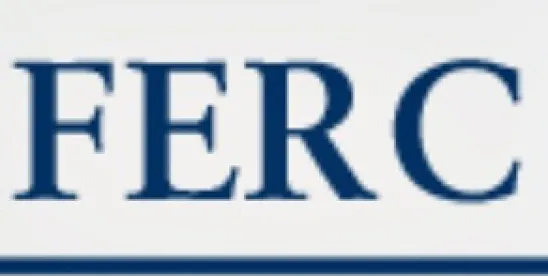US Energy, Infrastructure, and Resources Alert
On 19 October 2023, the Federal Energy Regulatory Commission (FERC) issued a final rule directing the North American Reliability Corporation (NERC) to develop new or modified reliability standards to tackle the issue of grid reliability gaps relating to inverter-based resources (IBRs).1 The reliability standards will impact wind and solar renewables, as well as battery storage.
IBRs are power-generating technologies that change Direct Current power produced by generators into Alternating Current power that is transmitted to the grid. Some IBRs are not configured or programmed to support grid voltage and frequency in the event of a system disturbance and might cease operating for a time during the disturbance. This brief cessation, even for micro-seconds, can cause a reduction in power output that threatens grid reliability when it occurs across many resources grid-wide. IBRs could, however, provide operational flexibility to the grid because of their ability to operate during greater frequency deviations than synchronous generation resources.
Two key considerations play a role in FERC’s issuance of the final rule. First, FERC notes that the current reliability standards were developed to accommodate conventional, synchronous generators instead of IBRs. These standards, therefore, may not properly account for the technical differences of IBRs and may not provide system operators with the appropriate tools to incorporate IBRs onto the grid. Second, FERC notes that the power grid is undergoing a rapid change in the mix of generation resources, which includes an “unprecedented proportion of nonsynchronous resources” or IBRs.
NERC’s new or modified reliability standards will have significant implications for developers, owners and operators of inverter-based renewable energy resources.
FINAL RULE REQUIREMENTS FOR THE NEW INVERTER-BASED RELIABILITY STANDARDS
FERC’s final rule directs NERC to develop new or modified reliability standards to address at least four key areas: (1) data sharing; (2) model validation; (3) planning and operational studies; and (4) performance requirements. NERC must file within 90 days the rule’s issuance a detailed, comprehensive standards development and implementation plan.
-
Data Sharing: Generator owners, transmission owners, and distribution providers must share validated modeling, planning, operations, and disturbance monitoring data for all IBRs so that planners have the necessary data to predict the behavior of IBRs individually and in the aggregate.
-
Model Validation: All IBR models must be comprehensive, validated, and updated in a timely manner, so that planners can adequately predict the behavior of IBRs individually and in the aggregate.
-
Planning and Operational Studies: Planning and operational studies must include validated IBR models to assess the reliability impacts of IBRs individually and in the aggregate. Such studies must assess the impacts of all IBRs within and across planning and operational boundaries for normal operations and contingency event conditions.
-
Performance Requirements: IBRs must provide frequency and voltage support to the grid, and the reliability standards to be promulgated by NERC must establish clear and reliable technical limits and capabilities, as well as post-disturbance ramp rates and phase lock loop synchronization requirements.
FERC explains that the final rule does not implicate federal-state jurisdictional concerns. NERC’s authority is limited to the Bulk-Power System, and does not extend to facilities interconnected to the distribution system. FERC points out that while certain directives pertain to registered entities—such as distribution providers obtaining aggregate data for distributed energy resources (IBR-DERs)—the final rule does not impose any requirements on non-registered entities or facilities used in the local distribution of electric energy.
NERC must file the new or revised standards on a staggered basis, beginning 4 November 2024 through 4 November 2026.
TAKE-AWAYS AND LESSONS LEARNED
The standards development process initiated by the final rule will be a significant undertaking. It will be critical for developers, owners, and operators of IBRs to engage with NERC’s Standards Development Teams and bring the voice of industry into the process. As FERC noted, while NERC has ongoing projects relating to IBRs, the final rule requires a comprehensive plan that will apply nationwide to all stages of interconnection, planning, and operations.
The final rule will become effective 60 days after publication in the Federal Register.
We acknowledge the contributions to this publication from our first year associate Stuart B. Robbins.
FOOTNOTES
1 Reliability Standards to Address Inverter-Based Resources, 185 FERC ¶ 61,042 (2023).



 />i
/>i

